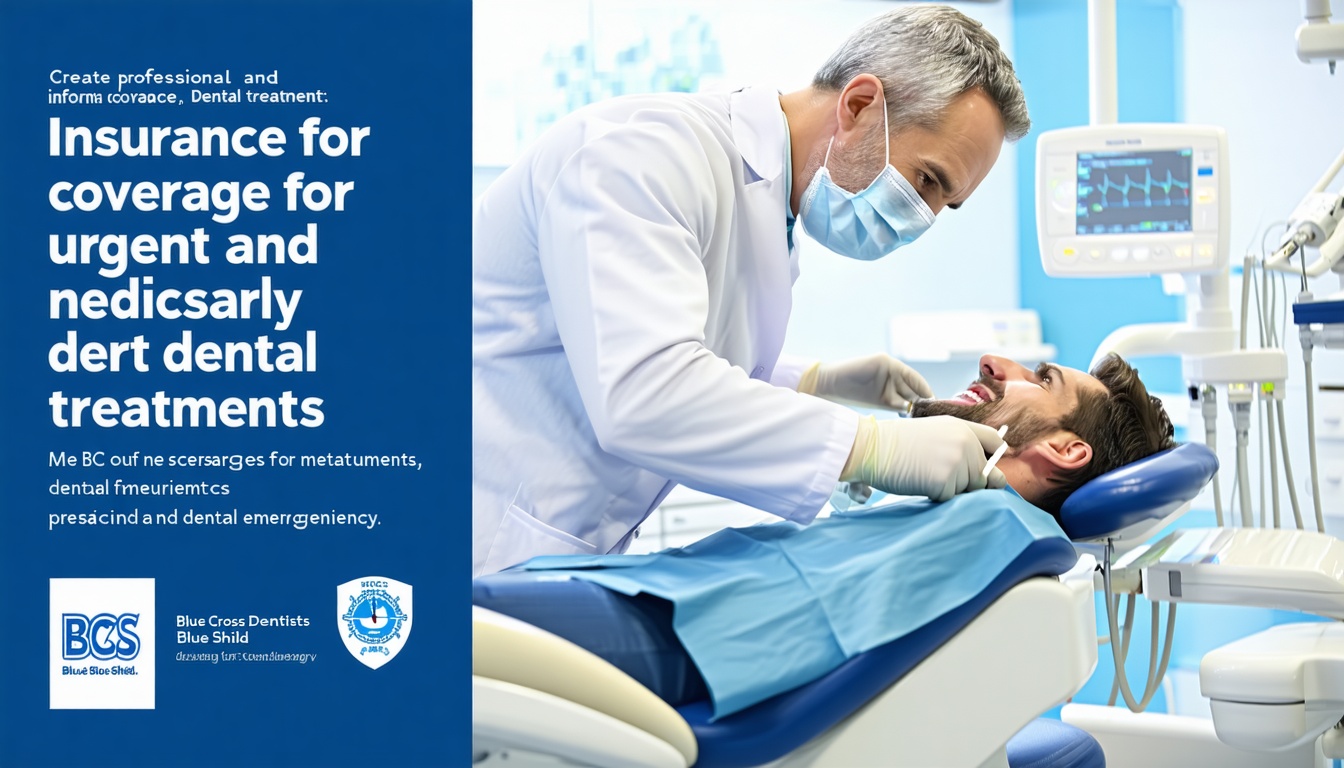
When you need a BCBS dentist for dental emergencies, you want clarity on what your plan covers and how to access care quickly. Blue Cross Blue Shield plans, backed by the Blue Cross Blue Shield Association since 1929 (Blue Cross Blue Shield Association), generally cover urgent and medically necessary dental treatments. In this guide, you’ll learn how emergency services are defined, what’s included in your benefits, how to find an in-network provider and file a claim, plus tips for minimizing out-of-pocket costs.
Emergency dental care typically refers to treatments needed to stop bleeding, relieve severe pain, or address infection and trauma that threaten your health. Examples include:
These scenarios qualify as urgent or medically necessary care under most Blue Cross Blue Shield policies. However, routine checkups, cleanings and purely cosmetic procedures remain excluded.
Your specific BCBS plan may impose waiting periods, annual benefit maximums or service limits. Common exclusions include:
In addition, some plans require you to meet a deductible before coverage begins. Understanding your design helps you anticipate expenses and plan accordingly.
To ensure full benefits and lower costs, always choose a dentist in your BCBS network. You can locate an in-network emergency dentist by:
If you’re uncertain whether a dentist accepts your plan, confirm their participation before your visit.
Dental emergencies rarely follow a 9-to-5 schedule. Many BCBS network dentists offer extended hours, weekend clinics or on-call services. For example, you can explore options for a weekend emergency dentist with BCBS to find practices open outside regular business times. As a result, you’ll avoid costly emergency room visits for issues a dentist can handle.
Palliative treatments to manage pain—such as prescriptions for analgesics, temporary fillings or sedative dressings—are generally covered once you meet any applicable copayment. These interventions buy you time until definitive care is available.
Extractions for irreversibly damaged or infected teeth fall under covered emergency services. Coverage may require preauthorization when removing impacted wisdom teeth or surgically complex cases. For more on benefits and steps during extraction, see our article on dental extraction coverage with BCBS.
Oral surgery to address severe trauma, fractures of the jaw or removal of diseased tissue is treated as a medical necessity. As a result, Blue Cross Blue Shield plans typically cover procedures performed by an in-network oral surgeon, subject to your deductible and coinsurance.
When an abscessed or infected tooth requires a root canal to preserve your tooth structure and prevent systemic infection, coverage often falls under major restorative services. Coverage levels vary by plan tier but remain available when performed by a network endodontist.
| Service category | Typical coverage notes |
|---|---|
| Pain relief and palliative care | Covered after copay |
| Tooth extraction | Covered; preauthorization for surgical cases |
| Surgical trauma repair | Covered with network surgeon; coinsurance may apply |
| Root canal therapy | Major service coverage; deductibles and copays may vary |
| Other medically necessary surgery | Covered when preauthorized |
For a complete list of procedures and benefit details, refer to our guide on dental emergencies covered by BCBS.
Most BCBS plans include an annual deductible that you must satisfy before certain benefits take effect. Copayments and coinsurance percentages apply even after your deductible is met. Common cost structures:
To reduce your share of expenses:
In addition, confirm whether your plan has an out-of-pocket maximum; once reached, BCBS covers 100% of eligible services for the remainder of the year.
For complex or surgical procedures, your plan may require preauthorization. Steps typically involve:
Lack of preauthorization can lead to reduced benefits or claim denial, so verify requirements early.
To file an emergency dental claim smoothly, gather:
Submit these documents through your member portal or by mail as instructed on your ID card. Keep copies of everything for your records.
Some dental emergencies—especially those involving facial fractures or airway compromise—warrant a trip to the hospital emergency department. For nonlife-threatening but urgent issues, such as severe toothache, exposed nerves or lost fillings, an in-network dentist visit is more cost-effective and specialized. If in doubt, call your dentist first or reach out to BCBS customer service.
While waiting for professional care:
These measures can help stabilize your condition and prevent further damage until you see a qualified provider.
For guidance on accessing immediate care under your plan, see our post on urgent dental care with BCBS insurance.
1. How quickly should I see a dentist after dental trauma?
As soon as possible—ideally within two hours—to improve the chance of saving a knocked-out tooth and to prevent infection.
2. Will BCBS cover root canal emergencies the same day?
If you have preauthorization for major restorative services, your plan should apply root canal coverage immediately after your deductible and copay requirements are met.
3. Can I use out-of-network dentists in an emergency?
In true emergencies, BCBS may offer limited out-of-network benefits, but you’ll likely face higher out-of-pocket costs. Always verify coverage with customer service.
4. Does my plan cover emergency tooth extraction for children?
Most family plans include pediatric emergency dental services. Coverage levels mirror adult benefits, subject to your plan’s deductible and coinsurance.
5. What if my claim is denied?
Review the denial reason and contact BCBS to appeal. You can submit additional clinical records or notes demonstrating the medical necessity of your treatment.
By understanding your benefits, locating an in-network provider and following the proper authorization and claims process, you can ensure timely, cost-effective emergency dental care. Keep your BCBS member ID handy, familiarize yourself with covered services and reach out to your plan or dentist at the first sign of severe dental issues. With the right preparation, you’ll be ready to handle any urgent dental situation confidently.


